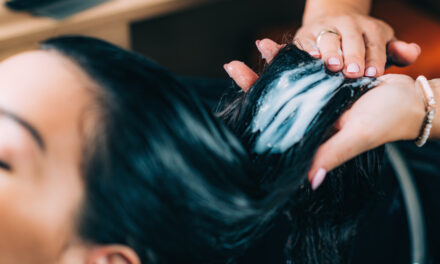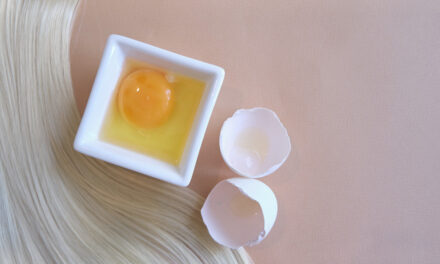
The connection between your diet and the health of your hair is often underestimated. Many are unaware that daily consumption can profoundly affect their hair’s strength, growth, and overall vitality.
It’s crucial to realize that while external hair care products are essential, the secret to healthy hair lies in our food. This exploration will delve into the top 10 foods that cause hair loss, emphasizing the importance of a balanced diet for maintaining lush, healthy hair.
This knowledge helps prevent hair loss and educates us on better dietary choices for overall well-being.
Understanding Hair Loss and Nutrition

The Role of Nutrients in Hair Growth
The journey to luscious, healthy hair begins on your plate. Hair growth is intricately tied to the nutrients that fuel your body.
Proteins, the building blocks of hair, are essential for growth and repair. Vitamins, such as biotin, vitamin E, and others, play a critical role in maintaining hair strength and shine.
Minerals like iron and zinc are vital for hair follicle health. However, it’s essential to understand that not all foods contribute positively to hair health.
Some can be detrimental. Thus, a balanced diet of these essential nutrients fosters robust and vibrant hair.
Focusing on nutrient-rich foods can create a solid foundation for promoting human hair growth and preserving hair health. Including adequate vitamin D is also essential in this process.
How Poor Diet Can Lead to Hair Loss
The impact of diet on hair cannot be overstated. While a nutrient-rich diet can be a fountain of health for your hair, a poor diet can be just as detrimental.
Diets lacking in essential vitamins, minerals, and proteins can lead to noticeable hair thinning and loss, often observed in conditions like male pattern hair loss and female pattern hair loss. Your hair follicles require constant nutrients to maintain their growth cycle.
Deficiencies in specific nutrients, such as zinc deficiency or iron deficiency anemia, can particularly exacerbate these issues. Moreover, diets high in harmful ingredients such as excessive sugar, processed foods, and unhealthy fats can aggravate hair loss.
These foods can cause hormonal imbalances and inflammation, further affecting hair health. Therefore, identifying and avoiding these harmful foods is crucial.
Embracing a balanced diet tailored to meet your nutritional needs is a fundamental step in preventing hair loss and maintaining overall hair health.
Top 10 Foods That Cause Hair Loss
The top 10 foods that can contribute to hair loss are:
1. Sugar-Rich Foods
Consuming too much sugar can create a hormonal imbalance and hinder the absorption of vital nutrients essential for maintaining healthy hair. High sugar levels in the body can also lead to inflammation, further exacerbating hair loss issues.
Reducing your sugary foods and beverages is advisable to avoid these adverse effects. Embrace natural sources of sweetness like fruits, which offer sugar in a more balanced form along with beneficial fibers and nutrients, thus helping to affect hair health positively.
2. High Mercury Fish
Certain types of fish, such as swordfish and mackerel, contain high levels of mercury, which can be detrimental to hair health. Excessive mercury in the body can disrupt the hair growth cycle, leading to potential hair thinning and loss.
For a healthier seafood option, consider low-mercury fish like salmon and trout, rich in omega-3 fatty acids, promoting hair health. Regularly consuming these safer fish alternatives can help maintain your hair and overall health.
3. Refined Carbohydrates
Refined carbohydrates in foods like white bread and pastries can cause rapid spikes in blood sugar levels. These spikes can negatively affect the body’s hormonal balance, impacting your hair’s health and growth cycle.
Switching to whole grain alternatives, which provide more stable energy and are rich in hair-healthy nutrients like B vitamins, can be a better choice for your overall health and hair. Whole grains also have a lower glycemic index, which helps in maintaining a healthier blood sugar level.
4. Alcohol
Alcohol consumption can lead to dehydration, which not only affects your body but also can have a drying effect on your hair. This dehydration can cause your hair to become brittle and more prone to breaking.
Moreover, excessive alcohol can deplete essential nutrients in your body, negatively impacting hair growth and health. It’s important to consume alcohol in moderation and include hydrating beverages like water and herbal teas in your diet, supporting overall hydration and hair health.
5. High Sodium Foods
Consuming foods with high sodium content can lead to an imbalance in the body’s fluid levels, negatively impacting not just overall health but also the health of your hair. This imbalance can result in hair that is dry and brittle, making it more susceptible to thinning and loss.
It’s crucial to limit your intake of high-sodium foods, often found in processed and fast foods, to prevent these adverse effects. Instead, focus on incorporating fresh, unprocessed foods into your diet, which naturally contain lower sodium levels and are healthier for both your body and hair.
Brittle hair can significantly affect hair loss, emphasizing the need for a balanced diet.
6. Artificial Sweeteners
Often found in diet foods and sugar-free products, artificial sweeteners can disrupt the body’s hormonal balance, essential for maintaining healthy hair growth. This disruption can lead to hair thinning and loss.
It’s advisable to avoid artificial sweeteners and choose natural sweetening options instead to maintain optimal hair health. Natural sweeteners like honey or maple syrup provide a healthier alternative and contain beneficial nutrients that support overall health and well-being.
7. Diet Sodas
Diet sodas, although low in calories, contain a variety of chemicals and artificial sweeteners that can have a detrimental impact on hair health. These additives can contribute to hormonal imbalances and nutrient deficiencies, critical factors in maintaining healthy hair.
Replacing diet sodas with natural beverages is recommended to promote better hair health. Options like infused water, which can be flavored with fruits or herbs, and herbal teas are excellent choices that provide hydration without the harmful effects of artificial additives.
8. Excess Vitamin A
While Vitamin A is essential for many bodily functions, including hair growth, an excess can lead to hair loss. Overconsumption of Vitamin A, especially in supplement form, can trigger hair follicles into overdrive and, subsequently, a resting phase, leading to hair shedding.
It’s essential to regulate your Vitamin A to maintain a healthy balance. Focus on consuming moderate amounts of foods rich in Vitamin A, such as sweet potatoes, carrots, and spinach, which provide the nutrients in a natural and balanced form and are beneficial for hair health.
9. Fried and Greasy Foods
Regular consumption of fried and greasy foods can contribute to the buildup of unhealthy oils on the scalp. This excessive oiliness can clog hair follicles, impeding healthy hair growth and potentially leading to hair loss.
Moreover, the unhealthy fats in these foods can negatively impact overall health, indirectly affecting hair health. You should include healthy fats in your diet to promote better hair and scalp health.
Foods like avocados, nuts, and seeds are rich in beneficial fatty acids that support hair strength and growth, offering a nutritious alternative to fried and greasy options and helping to promote hair growth.
10. High-Glycemic Index Foods
Foods with a high glycemic index, such as white bread, pastries, and sugary snacks, can cause rapid spikes in blood sugar and insulin levels. These fluctuations can disrupt the body’s hormonal balance, impacting the hair growth cycle and potentially leading to hair thinning or loss.
Choosing foods with a low glycemic index is beneficial to maintain a stable insulin level and support hair health. These include legumes, whole grains, and a wide variety of vegetables.
Such foods provide a steady release of energy, help maintain a healthy hormonal balance, and are generally richer in nutrients vital for maintaining healthy hair.
Other Hair Loss Prevention Tips

Other tips for preventing hair loss include:
Regular Exercise:
- Increases blood flow to the scalp, promoting hair growth.
- It helps in balancing hormones and reducing stress.
Proper Hair Care:
- Gentle handling to avoid damage.
- Avoiding excessive heat and harsh chemicals.
- Using suitable hair care products for your hair type.
- Avoiding over-styling and tight hairstyles to prevent traction alopecia.
- Regular washing to maintain a clean scalp.
Stress Management:
- Practices like meditation, yoga, and mindfulness to reduce stress.
- Ensuring adequate sleep.
- Seeking professional help if necessary.
Environmental Factors:
- Protecting hair from prolonged sun exposure using hats or UV-protective products.
- Rinsing hair after swimming to reduce chlorine damage.
Final Thoughts
Your diet significantly influences the health of your hair. Consuming foods rich in essential nutrients while avoiding those detrimental to hair health is key to fostering more robust, healthier hair.
Regular exercise, proper hair care, and stress management complement an excellent diet promoting hair growth. Additionally, supplementing with hair growth vitamins, like those from Vitamins Revive, can provide an extra boost by ensuring your hair receives all necessary nutrients.
Adopting this comprehensive approach can effectively nourish your hair from within, leading to noticeable improvements in its health and appearance.
FAQs
Which food causes more hair fall?
Foods high in sugar, refined carbohydrates, and saturated fats are mainly known to cause more hair fall, as they can disrupt hormonal balance and nutrient absorption essential for hair health.
What are the worst foods for hair loss?
The worst offenders for hair loss include sugar-rich foods, high-mercury fish, alcohol, and high-sodium processed foods, which can negatively impact hair growth and scalp health.
What food can avoid hair loss?
Foods rich in proteins, omega-3 fatty acids, vitamins (especially biotin and vitamin E), and minerals like iron and zinc, such as leafy greens, nuts, eggs, and fatty fish, can help prevent hair loss.









